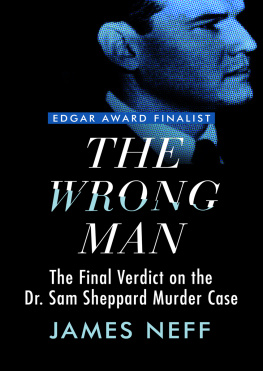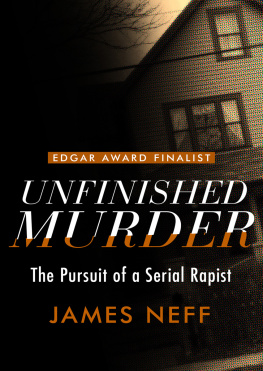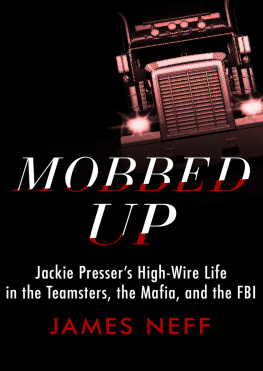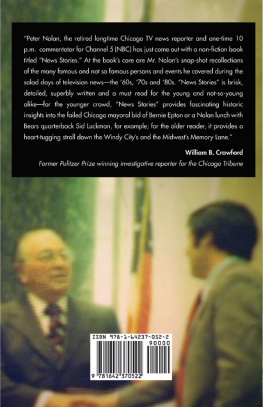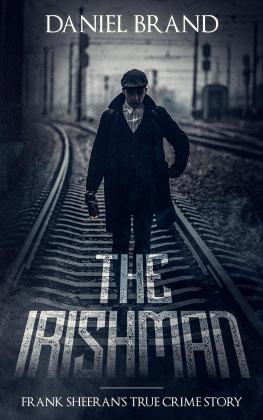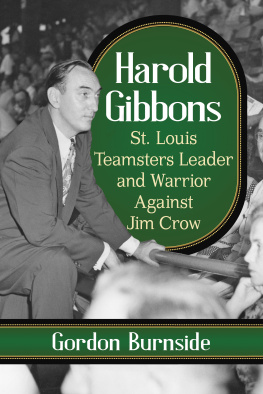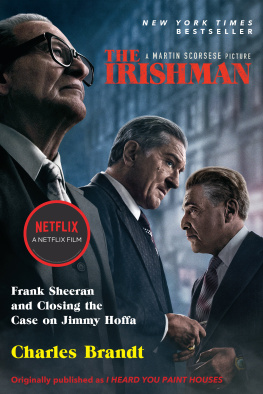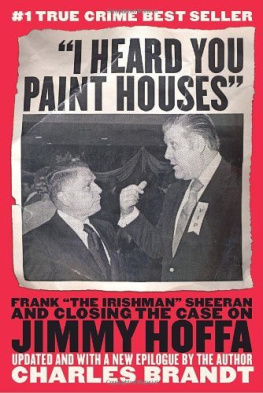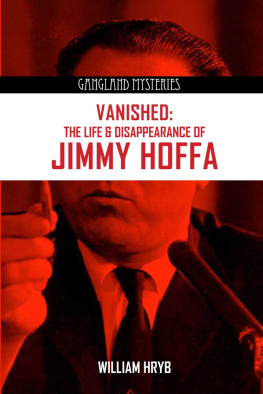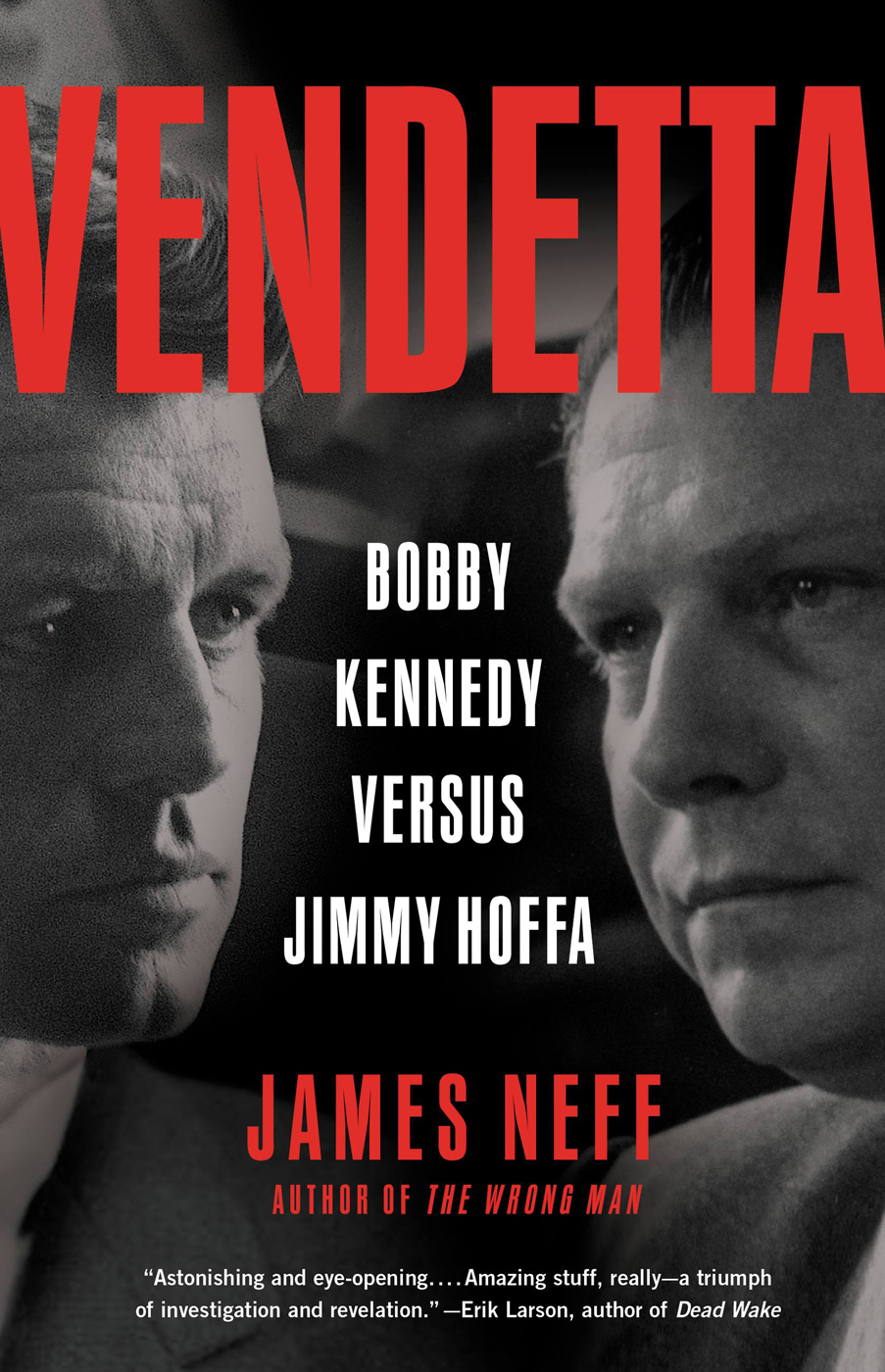THE WEATHER IN THE NATIONS capital was so uncharacteristically sunny and warm on Friday, November 22, 1963, that attorney general Robert F. Kennedy interrupted a big Justice Department meeting about fighting organized crime to take lunch outdoors at Hickory Hill, his rolling Civil Warera estate about three miles outside Washington, DC. Among those joining him for tuna sandwiches and tomato soup at tables by the swimming pool were the US attorney in Manhattan, Robert Morgenthau, and RFKs wife, Ethel Kennedy.
At quarter to two, just as Kennedy prepared to head back to the Justice Department, a workman who had been painting a new wing at the Kennedy home sprinted toward them. He wore a painters cap and held a transistor radio in one hand and shouted words nobody at first could quite make out. Just then a telephone extension at the pool rang with a call from FBI director J. Edgar Hoover.
Bobby Kennedy knew something was wrong, because Hoover never called him at home. I have news for you, the FBI director said. The presidents been shot.
After he hung up, RFK clapped his hand over his mouth, and Morgenthau saw a look of shock and horror on his friends face. Ethel rushed to his side, and for a few seconds he was speechless. Then he choked out the words, Jacks been shot. It may be fatal.
The phones at Hickory Hill rang all that afternoon as family and friends called or arrived unbidden to try to provide some comfort. At half past two, Hoover phoned again, and in an affectless tone this time informed RFK, The presidents dead.
By then, Jim McShane, head of the US Marshals Service, had his men posted on the perimeter of the Kennedys six-acre estate. RFK, McShane, and others were worried that the attack on the president might be part of a broader assault on the nations leaders, and he wanted to protect Kennedys family.
When Justice Department spokesman Ed Guthman showed up, he and RFK paced back and forth across the lawn as Bobbys anguished words spilled out. The two men had met seven years earlier in Seattle, after Guthman published a string of exposs in the Seattle Times about Teamsters union corruption. RFK had just gotten started as chief counsel for what became known as the Senate Rackets Committee hearings, a massive, groundbreaking investigation that exposed dirty alliances between labor racketeers and business leaders and transfixed millions of television viewers as hoodlums, fixers, and crime bosses took the fifth while being hectored by the boyish, occasionally fumbling Bobby Kennedy. His target in chief turned out to be defiant, charismatic Teamsters president Jimmy Hoffa.
Theres so much bitterness, RFK told Guthman that Friday afternoon. I thought theyd get one of us. I thought it would be me.
Under the bright skies at the Miami International Airport only a few days earlier, President Kennedy did not encounter It was five in the afternoon, seventy-four degrees, and a warm wind blew JFKs reddish-brown hair over his forehead. Kennedy, in a dark blue suit and green tie, laughed at the glorious crowd and, with the barest hint of a limp, stepped toward the throng clamoring along the fence.
Please, Mr. President, a burly Secret Service agent said. Follow the route weve
Give me a minute, boys, Kennedy said. Ive got to talk to these people.
At the fence, women were crying and tried to reach over to kiss him. God bless you, my boy! one woman shouted. Men reached for his lapels, as if to slow him down for an instant to make a connection. A small boy held up his Yogi Bear doll, hoping to hand it to him.
One of the Secret Service agents implored, Please, please! Mr. President! and eventually they steered him to his convertible limousine.
Arrangements already had been made for Teamsters president Jimmy Hoffa to visit Miami when his nemesis in the White House finished his early campaign swing in south Florida. Hoffa despised the Kennedys and used the might of the nations biggest, most powerful union to try to thwart their crusade to jail him. Months earlier, the Justice Department brought criminal charges against him in both Chicago and Nashville.
Hoffa was wrapping up business at a midday meal at a Miami restaurant on Friday, November 22, when radio reports swept through the city that President Kennedy had been shot. The awful news from Dallas was relayed by public-address systems in department stores, by dispatchers to the citys scores of cab drivers, and by tearful busboys crowded around transistor radios back in the kitchen.
Hoffa rose to his feet, stepped up on his chair, and began to cheer. I hope the worms eat out his eyes, he would later say.
Soon Hoffa called one of his lawyers, Frank Ragano of Tampa, Florida, whose second-most-famous client was the Mafias Florida boss, Santo Trafficante Jr. Have you heard the good news? Hoffa asked the young lawyer. They killed the son of a bitch. This means Bobby is out as attorney general. Lyndon will get rid of him. Asked by reporters that weekend about his reaction to the assassination, Hoffa replied at one point with a brutal, offensive truth: Bobby Kennedy is just another lawyer now.
In time, searing grief would paralyze Robert Kennedy. But by Friday afternoon, he suspected that dark forces were behind his brothers murderthat the they who would get one of us could be the mob or Hoffa, targets of his own ruthless pursuit. Before he left for the airport to meet Air Force One, carrying the body of his slain brother, RFK called trusted associates in the Kennedy network, some of whom referred to themselves as the Band of Brothers, loyalists working in agencies across all areas of government, men with maverick streaks that enabled them to operate outside bureaucratic lines.


